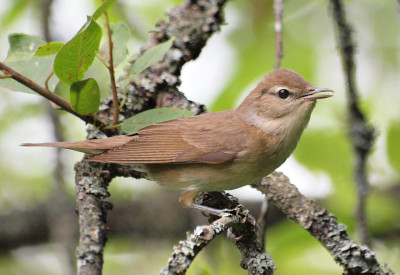 Past Events
Past Events
Walk 28 April 2024
Leaders Cliff & Stephen welcomed seven “frequent flyers” and five “first timers” on a morning with a promising southerly breeze and an unreliable promise of no rain.
Since the last walk, fresh migrants had arrived; the first we saw being a pair of House Martins over the village (the first had also been seen in other nearby locations the previous day). We once more took the track alongside Narrow Pits both to shelter from the wind and profit from the great range of songbirds in the varying habitats there. Listening in to the many songs, we distinguished 8 species of warbler, including Garden Warbler which, unlike the others (Chiffchaff, Blackcap, Whitethroat, Lesser Whitethroat, Reed, Sedge & Cetti’s) only passes through here on migration.

Overhead, the Black-headed & Mediterranean Gulls were joined by screeching Common Terns and then a wave of migrating Swifts – the very first individuals had been seen only a week previously. All four species had found a thermal and were spiralling upwards.
The original intention had been to continue as a far as the Barn Pools, but the path there was likely to be flooded so we turned east, away from the scrub, into wind and clearly approaching rain. At the end of Salt Pool, we once more came across the famous Spotted Redshank, blacker than ever – even its red legs had darkened – and then the shower forced us into a quick march to the shelter of the Denny Hide. From here, we could see the nesting Black-headed Gulls were joined by a few Common Terns. With water levels still so high, island nesting spaces and feeding edges are restricted, but the latter were patrolled by Turnstones, already resplendent in tortoiseshell breeding colours.
Round at Flat Beach, the creeks were busy with feeding Avocets, now joined by numerous arctic-bound Bar-tailed Godwits in contrasting winter grey and summer chestnut. Up to 98 of these were present, alongside Whimbrel probing the saltmarsh, their trilling calls providing an atmospheric soundtrack. This short walk had turned up no fewer than 65 species!